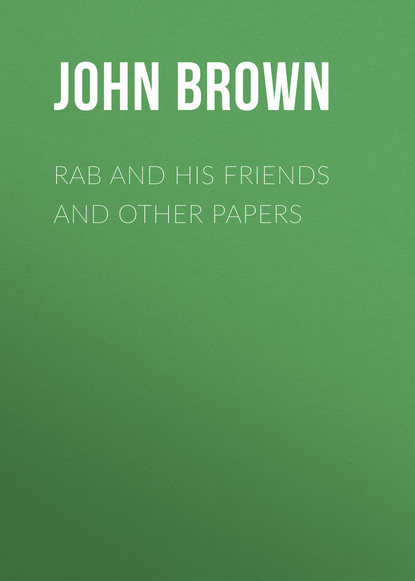 Полная версия
Полная версияПолная версия:
Rab and His Friends and Other Papers
43
This will remind the reader of a fine passage in Edwin the Fair, on the specific differences in the sounds made by the ash, the elm, the fir, etc., when moved by the wind; and of some lines by Landor on flowers speaking to each other; and of something more exquisite than either, in Consuelo – the description of the flowers in the old monastic garden, at the "sweet hour of prime."
44
Remains, vol. iii. p. 105.
45
"An unfortunate reference (Acts xiv. 15), for the apostle's declaration is, that he and his brethren were of 'like passions' (James v. 17); – ? liable to the same imperfections and mutations of thought and feeling as other men, and as the Lystrans supposed their gods to be; while the God proclaimed by him to them is not so. And that God is the God of the Jews as well as of the Christians; for there is but one God. Hallam's thought is an important and just one, but not developed with his usual nice accuracy." For this note, as for much else, I am indebted to my father, whose powers of compressed thought I wish I had inherited.
46
Abraham was called the friend of God "with him (Moses) will I (Jehovah) speak mouth to mouth, even apparently," – as a man to his friend David was "a man after mine own heart."
47
This is the passage referred to in Henry Taylor's delightful Notes from Life ("Essay on Wisdom"): – "Fear, indeed, is the mother of foresight: spiritual fear, of a foresight that reaches beyond the grave; temporal fear, of a foresight that falls short; but without fear there is neither the one foresight nor the other; and as pain has been truly said to be 'the deepest thing in our nature,' so is it fear that will bring the depths of our nature within our knowledge. A great capacity of suffering belongs to genius; and it has been observed that an alternation of joyfulness and dejection is quite as characteristic of the man of genius as intensity in either kind." In his Notes from Books, p. 216, he recurs to it: – "'Pain,'says a writer whose early death will not prevent his being long remembered, 'pain is the deepest thing that we have in our nature, and union through pain has always seemed more real and more holy than any other.'"



